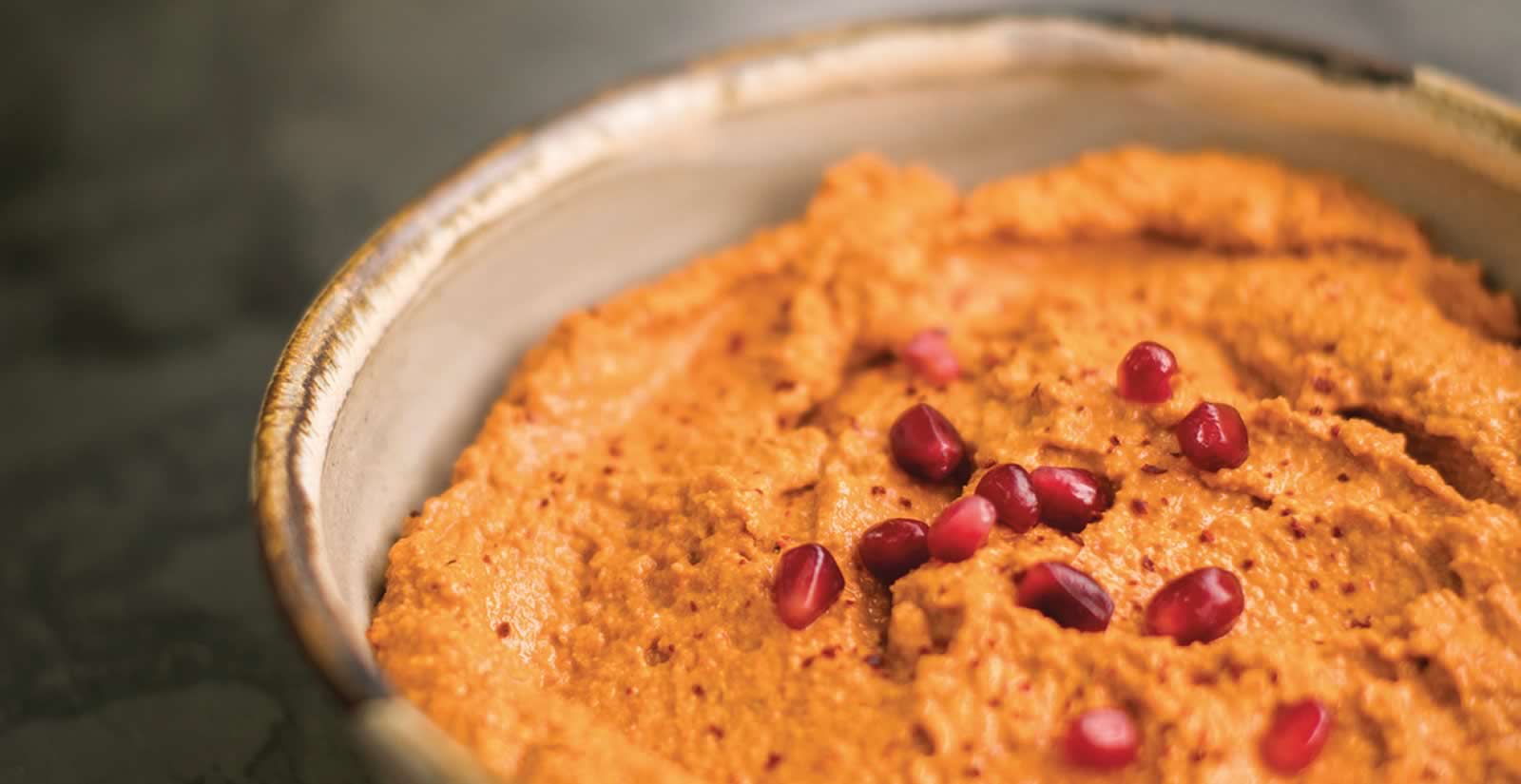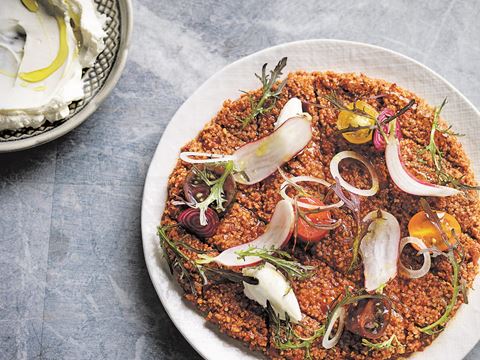
Flavors: Reem’s Muhammara
Muhammara dip recipe from Chef Reem Assil: In every home in Syria, my family would serve multiple mezze dips with dinner, and muhammara was always a centerpiece. It has the perfect combination of tangy, nutty and spicy flavors. And it looks beautiful on a dinner spread.
Muhammara is my homecoming. I discovered this addicting dip as an adult and fell in love with it when I went back to Syria in 2010.
At the time I was soul-searching in my father’s homeland and started to open my eyes to all the richness of my Syrian identity, particularly through the food and hospitality. Up until then I was only exposed to my mother’s Lebanese and Palestinian cooking and wasn’t as well-versed in Syrian food. In every home in Syria, my family would serve multiple mezze dips with dinner, and muhammara was always a centerpiece. It has the perfect combination of tangy, nutty and spicy flavors. And it looks beautiful on a dinner spread. I began to feature it at my farmers’ markets and catering, and it became an instant hit. Now it is a staple in my restaurant and represents my Syrian pride. Look for Aleppo pepper and pomegranate molasses in Middle Eastern or specialty grocery stores. Halve or double this muhammara recipe to suit your needs. Serve with your favorite bread.
Preheat your oven to 400°F (200°C). Line a baking sheet with parchment paper and place the peppers on it. Roast until the skins are charred, about 30 minutes, turning them over once or twice. Transfer to a sealable bag, or a bowl covered with plastic wrap, and set aside until cool enough to handle. Tear them open, remove the stem and seeds and peel the skins.
Working in batches, if necessary, combine the walnuts and breadcrumbs in a food processor and process to a cornmeal-like texture. Add the roasted peppers, pomegranate molasses, lemon juice, garlic, cumin, Aleppo pepper and salt. Pulse until smooth, turning off the machine and scraping down the sides of the bowl from time to time.
With the processor running, slowly add the olive oil and blend until the oil is completely incorporated. Taste and add salt if needed.
Garnish as desired and serve chilled or at room temperature.
Reprinted with permission from The Immigrant Cookbook
Leyla Moushabeck, ed. 2018, Interlink Books, 978-1-56656-038-2, $35 hb, www.interlinkbooks.com.

You may also be interested in...

Spicy Roasted Cauliflower Side Dish
Food
Ma’aleh is usually deep-fried cauliflower, served in a sandwich with raw vegetables and tarator.
Lebanese Dish: Cracked Wheat and Tomato Kibbeh Recipe
Food
Simply cooked line-caught fish with this beautiful tomato kibbeh. I don't know how you could top it.
Recipe: Chickpeas for Breakfast: Try Punjabi Chole Masala Recipe
Food
Chole masala is a popular breakfast dish of chickpeas.